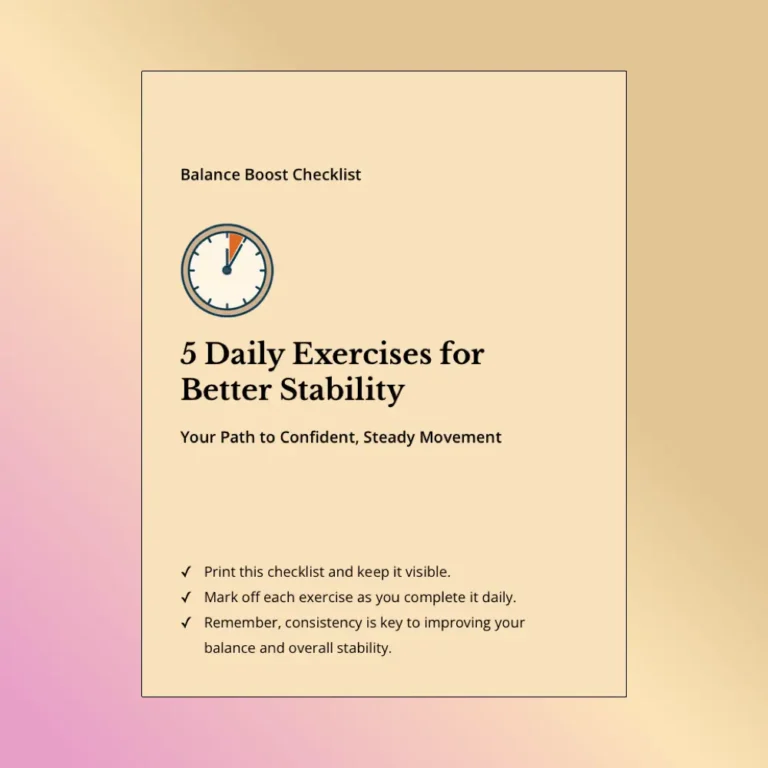
Highlights

As we gracefully age, weight management becomes much more than just looking good; it’s a cornerstone of maintaining our health and enhancing our quality of life. For older adults over 55, keeping weight in check isn’t merely about aesthetics; it directly affects our mobility, mental clarity, and helps prevent chronic diseases. The good news? Achieving and maintaining a healthy weight after 55 can be approached with finesse through smart nutrition and appropriate physical activity, keeping safety and independence at the forefront. It’s time to learn how to create the best weight loss plan just right for you.
Keeping a healthy weight as you get older plays a crucial role in maintaining mobility, decreasing the risk of conditions like diabetes and heart disease, and improving mental health. Research consistently shows that maintaining an appropriate weight correlates with a longer, more active life. This allows seniors to continue enjoying their favorite activities without being limited by preventable physical constraints. Weight management for seniors is essential for better health outcomes and overall well-being.
Let’s face it, our metabolism naturally slows down as we age. This metabolic slowdown means older adults typically need fewer calories to maintain their weight than they did in their younger years. Understanding this shift is key; even small changes in diet and activity can lead to meaningful results. Many older adults need to be particularly mindful of their caloric intake, focusing on nutrient-rich foods that provide energy without unnecessary calories. As we get older, weight changes become more noticeable with the same eating habits, and it is not uncommon to see obesity in older adults.
What’s considered a healthy weight for older adults? Generally, a Body Mass Index (BMI) between 22 and 27 is thought to be optimal for seniors. This range acknowledges that being underweight can lead to frailty and weakness, while carrying excess weight increases the risk of various health conditions like heart disease. Regular check-ins with healthcare providers can help seniors understand their personal ideal weight range and work toward achieving it. Obesity in seniors poses significant health risks that can impact quality of life.
When it comes to shedding pounds, patience truly is a virtue, especially among older adults. A safe weight loss rate is about 1 to 2 pounds per week. This gradual approach minimizes muscle loss and gives your body time to adjust to changes healthily. Quick weight loss programs can lead to complications and are rarely sustainable, so embracing a steady approach is both safer and more effective for long-term success. Safe weight management strategies for older adults focus on gradual, consistent progress.
Nutritional Guidelines: The foundation of effective weight loss strategies is a balanced diet rich in nutrients. Seniors should prioritize:
Meal Planning Tips: Preparing meals in advance can make healthy eating much simpler. Try incorporating a variety of food groups into each meal to ensure balanced nutrition. Many seniors often forget about staying hydrated, but water plays a key role in metabolism and overall health, and sometimes thirst can be mistaken for hunger. A proper diet for seniors should provide adequate nutrition while supporting weight loss efforts and goals.
The classic debate of exercise versus diet has special relevance for seniors. While changing what you eat often leads to quicker weight loss initially, adding physical activity is absolutely necessary for keeping the weight off long-term. The best approach combines both strategies. Exercise does more than just burn calories; it helps maintain a healthy weight and muscle mass, which is critical for a healthy metabolism as we age. Weight loss strategies that incorporate both dietary changes and physical activity help with weight loss maintenance more effectively.
Regular movement is a powerful tool in weight management and overall well-being. Beyond helping control body weight, physical activity improves mood, increases energy levels, and enhances overall health. Getting active can also be a wonderful way to socialize and stay motivated on your wellness journey. Physical activity is one of the most effective ways to lose weight and maintain weight loss for older adults. Weight loss without any physical activity is relatively harder to achieve for most.
Cardiovascular Activities: Moderate cardio exercises like walking, swimming, or cycling effectively burn calories without putting excessive strain on your joints. These activities aren’t just good for weight maintenance; they’re also great for heart health and mental wellbeing.
Strength Training: Resistance exercises for seniors are absolutely critical for maintaining muscle mass, which naturally decreases with age. Adding light weights or resistance bands to your routine can significantly improve muscle strength and boost your metabolic rate, helping you lose weight even at rest. Strength training can help prevent muscle loss that often occurs during weight loss.
Flexibility and Balance: Stretching and balance exercises, such as yoga or tai chi, are excellent for preventing falls, which become a greater concern as we age. These practices improve flexibility, strength, and mental focus while being gentle on the body.
Before starting any new fitness routine, consider consulting with a healthcare provider or fitness professional who specializes in senior health. They can help design a personalized plan that accounts for any health conditions you might have and aligns with your personal goals.
For practical guidance, check out fall prevention exercises designed specifically for seniors. These exercises can help enhance balance and stability, reducing the risk of falls that could interrupt your fitness journey. Making weight management a priority becomes easier when you find activities you enjoy.
Muscle mass plays a surprisingly important role in metabolism and overall health. Maintaining your muscles helps you stay active and independent, contributing significantly to quality of life. When muscle is lost, everyday activities can become more difficult, from carrying groceries to climbing stairs. Loss of muscle mass is a natural part of aging, but it can be minimized with proper strategies. That’s why preserving muscle should be a priority in any senior weight management plan.
To keep your muscles strong, aim to include strength training exercises at least twice a week, working all major muscle groups. Just as important is incorporating protein-rich foods into your meals, as protein provides the building blocks your body needs for muscle repair and growth. Experts recommend approximately 0.5-0.8 grams of protein per kilogram of body weight daily. Good options include eggs, lean meats, fish, beans, and Greek yogurt. Older adults can achieve better results in their weight loss journey by ensuring they receive adequate protein.
Several obstacles can make weight management trickier for seniors, including mobility limitations, reduced access to fresh foods, and social factors that might discourage physical activity, making it easier to gain weight than lose it. Recognizing these challenges is the first step toward finding ways around them. Weight management becomes challenging for seniors due to various factors that younger adults might not face.
Setting realistic weight loss goals, celebrating small victories, and finding a support network can dramatically boost motivation. Consider joining group exercise classes or community wellness programs; they foster a sense of belonging and accountability that many find helpful for sticking with healthy habits. Many seniors experience improved mood and energy when they manage weight effectively.
If you’re looking for additional support, explore resources like anti-inflammatory foods for seniors to learn about nutritional choices that can enhance your health and complement your weight management efforts. Recent research on weight management in older adults provides valuable insights into effective approaches for seniors trying to lose weight.
What is a safe weight loss rate for seniors?
A safe weight loss rate for seniors is typically between 1 to 2 pounds per week. This gradual approach helps maintain muscle mass and promotes long-term success. Losing weight too quickly can lead to unintentional weight loss of muscle, which can be detrimental to seniors. Successful weight loss programs for adults age 60 and older focus on sustainable changes rather than rapid results.
Is exercise more effective than diet for seniors?
Both exercise and diet are important for effective weight management. While dietary changes often lead to quicker weight loss results, exercise plays a critical role in maintaining muscle mass and preventing weight gain. The most successful approach for seniors combines thoughtful eating habits with regular physical activity tailored to individual abilities. Studies show that combining dietary changes with physical activity leads to more sustainable weight loss in older people.
How can seniors maintain muscle mass?
To maintain muscle mass, seniors should engage in regular strength training exercises, consume adequate protein (about 0.5-0.8 grams per pound of body weight), and ensure a balanced diet rich in nutrients. Staying active throughout the day, even with simple movements, also helps preserve muscle function and strength. Research published in medical journals demonstrates that resistance training is particularly effective for helping older adults to maintain muscle mass during weight loss.
Weight management for seniors is a journey that involves understanding how metabolism changes with age, adopting healthy eating habits, and engaging in regular physical activity. By taking a balanced approach that puts safety and well-being first, older adults can achieve their weight management goals while enjoying an active and fulfilling life.
Remember to check with healthcare professionals before starting any new diet or exercise program, especially if you have existing health conditions. The journey to weight loss and managing a healthy, long-term weight adequate for one’s age takes time and patience. Arm yourself with knowledge, find ways to stay motivated, and enjoy every step of this rewarding journey toward better health.
For more insights on maintaining strength and vitality as you age, take a moment to watch these informative videos:
How to Stay Active as You Age
Discover practical tips on staying active and engaged in physical activities throughout your senior years.
Strength Training for Seniors
Learn effective weight loss exercises designed specifically for older adults to maintain muscle mass and strength.
Embrace the ageless balance of health and vitality, and let each day be a celebration of your journey toward a healthier, more vibrant life. With patience, consistency, and the right approach, managing your weight after 55 can be an empowering experience that enhances your overall quality of life for years to come. Weight management strategies that focus on health rather than solely on weight provide the best outcomes for seniors.
